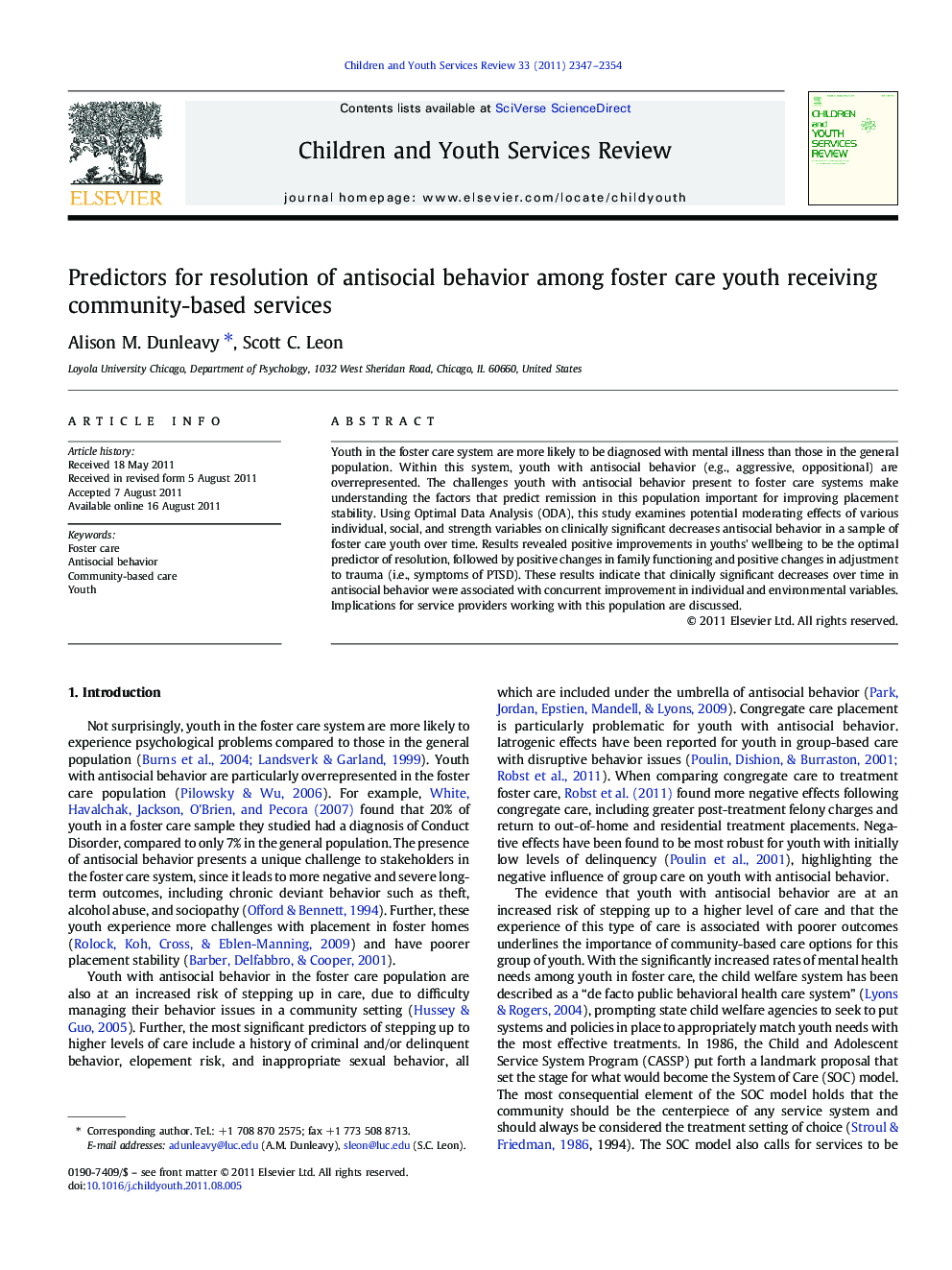| Article ID | Journal | Published Year | Pages | File Type |
|---|---|---|---|---|
| 346238 | Children and Youth Services Review | 2011 | 8 Pages |
Youth in the foster care system are more likely to be diagnosed with mental illness than those in the general population. Within this system, youth with antisocial behavior (e.g., aggressive, oppositional) are overrepresented. The challenges youth with antisocial behavior present to foster care systems make understanding the factors that predict remission in this population important for improving placement stability. Using Optimal Data Analysis (ODA), this study examines potential moderating effects of various individual, social, and strength variables on clinically significant decreases antisocial behavior in a sample of foster care youth over time. Results revealed positive improvements in youths' wellbeing to be the optimal predictor of resolution, followed by positive changes in family functioning and positive changes in adjustment to trauma (i.e., symptoms of PTSD). These results indicate that clinically significant decreases over time in antisocial behavior were associated with concurrent improvement in individual and environmental variables. Implications for service providers working with this population are discussed.
► We examined predictors of resolution of antisocial behavior in foster care youth. ► Optimal Data Analysis was used to identify significant predictors of resolution. ► Resolution was associated with improvement in internal and environmental factors.
